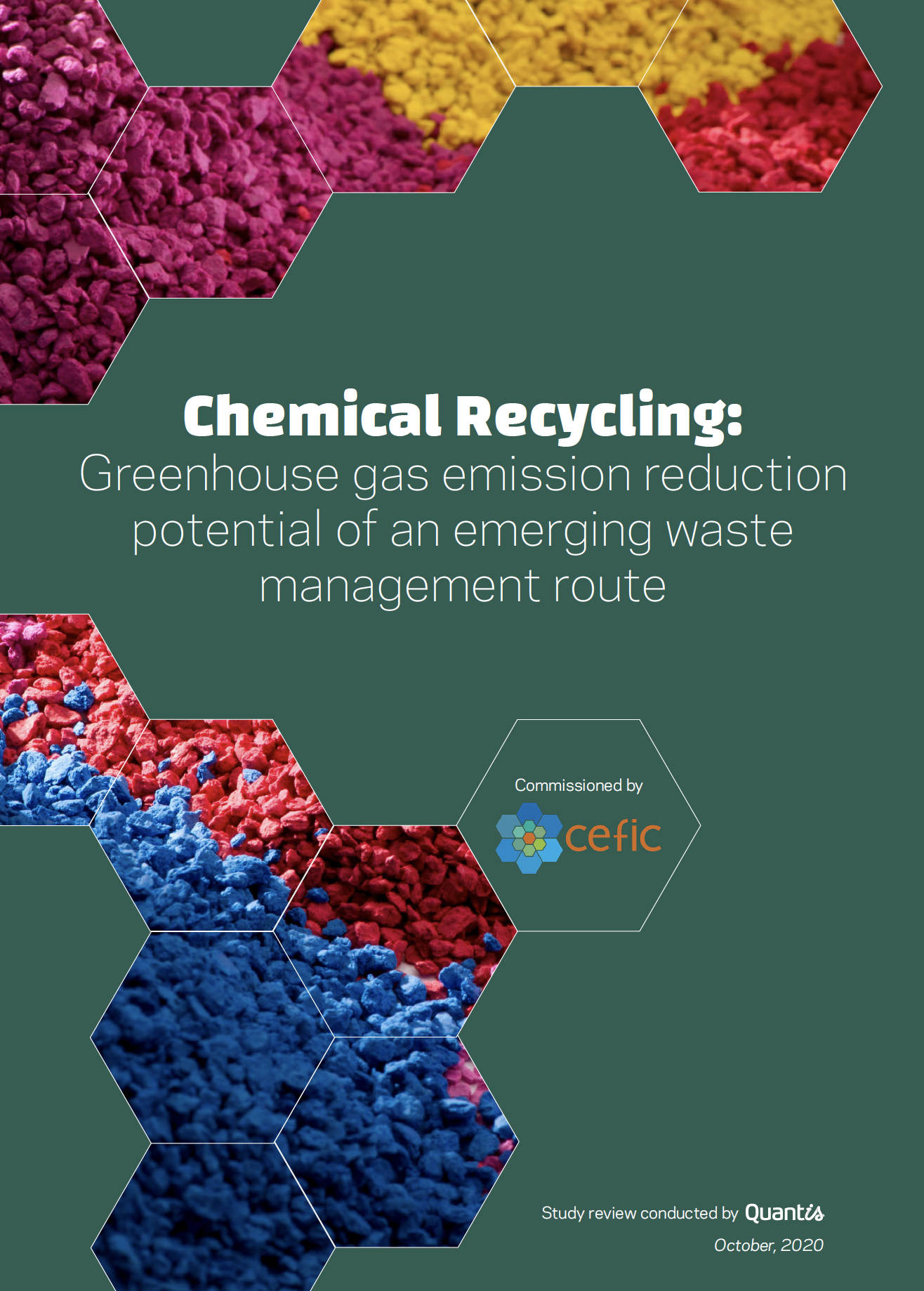To end the plastics waste crisis, there’s an urgent need to improve recycling solutions. Can chemical recycling technologies contribute to boosting plastics circularity? To tackle the question, Quantis created a report commissioned by the European Chemical Industry Council (Cefic) to take a closer look at the climate change impacts of chemical recycling technologies. The report examines four different studies about chemical recycling technologies and shares key insights to help guide companies in developing a plastics strategy that aligns with climate targets.
Chemical Recycling: Greenhouse gas emission reduction potential of an emerging waste management route explores plastics disposal and highlights the potential for greenhouse gas emissions savings with chemical recycling, as well as possible challenges. Chemical recycling technologies are expected to play an essential role in improving recycling rates when “reduce”, “reuse”, and existing mechanical recycling aren’t possible. The report uses Life Cycle Assessment (LCA) and a systemic material flow analysis to assess the environmental impacts of chemical recycling and better understand how it can fit into a circular economy for plastics.
Latest Quantis reports
 Report
Report By Quantis
Recipe for Transformation
Discover our new report on embedding sustainability across food + beverage business functions.
 Report
Report With Quantis
Business guidance for deeper regeneration
This climate guidance publication was developed by WBCSD with the support of Quantis is a first step in the work to align the remaining environmental...
 Report
Report With Quantis
Scope 3 action agenda for the agrifood sector
Discover the critical path to reducing GHG emissions within the agrifood sector in a publication developed by the WBCSD with support from Quantis.

